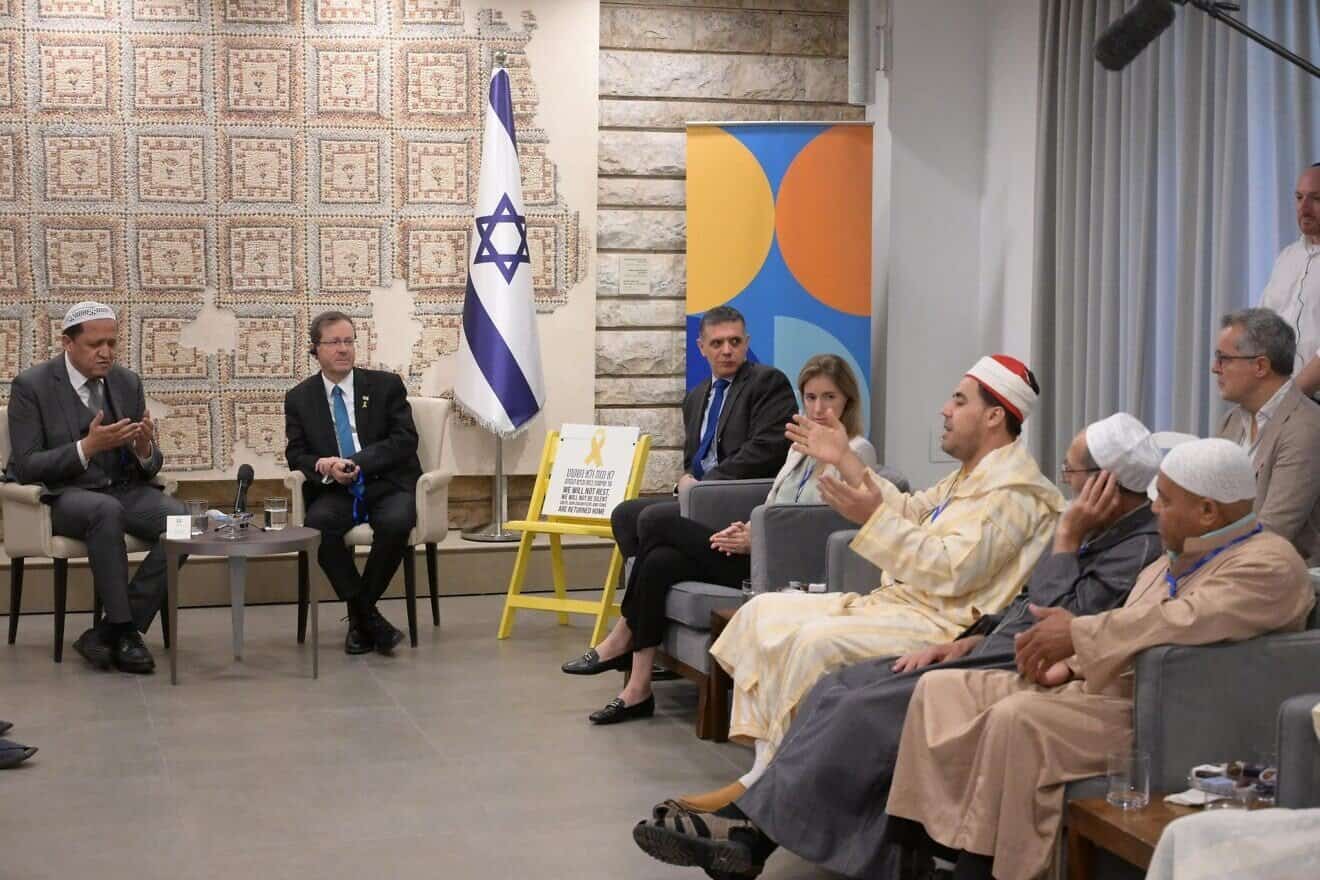Silencing Dissent: The Real Trap in Dr. Elmasry’s Argument
One of the main claims made by Dr. Elmasry is that Muslims and the global community must rally around the Palestinian people’s inalienable rights: to exist, to return home, and to live free from occupation. That statement stood out to me because it mirrors the very same reasoning behind the Jewish return to their ancestral land. Jews too have inalienable rights to exist, to return to their homeland, and to live free from persecution. If those rights are valid for Palestinians, then they must also be valid for Jews. The article, however, promotes these rights for one group while vilifying another for asserting the same. That contradiction exposes a double standard. This is not about universal justice but about selectively applied principles depending on political alignment.
Dr. Elmasry criticises a delegation of European imams who visited Israel, accusing them of being complicit in genocide. He refers to them as apologists and traitors. But where in Islamic teaching is dialogue and outreach considered treachery? The Quran repeatedly encourages reconciliation, speaking justly, and even engaging enemies with wisdom and patience. The Prophet himself made treaties, extended forgiveness, and pursued peace whenever possible. If these imams had refused dialogue, would they have then been accused of inaction? Or is it that any position short of total condemnation is branded betrayal by this article?
The article lays out what Dr. Elmasry calls three “theological traps” used to justify silence or neutrality. But these are not traps. They are thoughtful approaches rooted in Islamic jurisprudence and moral reasoning. The first so-called trap is the appeal to the greater good, where some scholars believe that speaking too forcefully could cause more harm than good. This is not fear or weakness. This is a foundational principle in both Islamic ethics and common sense. Sometimes remaining measured and preserving life or stability is more beneficial than escalating conflict. It is easy to speak in absolutes, but real leadership weighs consequences.
The second supposed trap involves scholars who prioritise theology and critique the actions or beliefs of Palestinian groups rather than focusing solely on Israel. But expecting moral accountability from all sides is not betrayal. If injustice is wrong, then it must be called out regardless of who commits it. Calling out doctrinal errors or rejecting the glorification of violence does not mean one supports occupation. It means one values moral clarity. If a Christian leader covers up abuse in their own church, they are not seen as loyal. They are seen as part of the problem. The same standard must apply here. Purity of cause demands the courage to confront corruption on all sides.
The third and most concerning “trap” described by Dr. Elmasry is the spiritual framing of suffering. He criticises those who reflect on hardship through the lens of divine wisdom, suggesting that this becomes an excuse for pacifism. But to say that suffering may be a test or purification is entirely consistent with Islamic belief. The Prophet Muhammad endured years of persecution, loss, and hardship. To remain patient and seek God’s wisdom in trials is not disengagement. It is faith in action. Accusing those who take this approach of complicity is to reject an essential part of Islamic spiritual life.
What I found even more troubling is what the article does not say. While it accuses others of being silent, it says nothing about Hamas. There is no mention of the deliberate targeting of Israeli civilians, the use of human shields, the rejection of every peace proposal, or the indoctrination of children with hate. The article demands accountability from Muslim scholars who try to take a balanced or careful position but gives complete exemption to those who have committed well-documented abuses and atrocities. That is not moral leadership. That is selective outrage.
Dr. Elmasry calls for unity, but defines unity as absolute agreement with his interpretation of the conflict. He condemns dialogue, even when rooted in religious teachings, and expects scholars to ignore nuance in favour of political theatre. This approach does not advance the cause of peace. It shuts down thought, vilifies difference, and demands blind loyalty.
I believe Palestinians deserve dignity, freedom, and a future free from war. But I also believe that peace cannot be built on moral double standards. If you want to defend human rights, they must apply to all. If you want to challenge injustice, you must be willing to speak honestly about the failures within your own camp. If you call others traitors for seeking understanding, then you have abandoned the very principles of mercy, truth, and humility that Islam teaches.
That is the perspective I was hoping to find in The New Arab. What I read instead was something far narrower, more hostile, and ultimately self-defeating.


Comments
Post a Comment